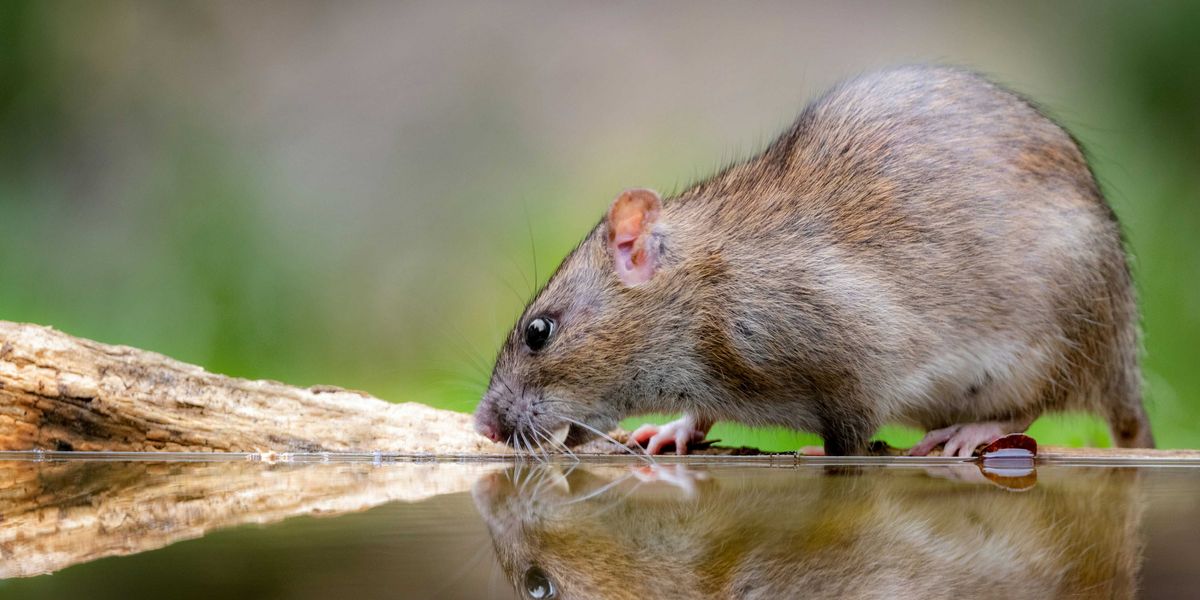EHN founder honored as environmental health champ.
Pete Myers recognized by the National Institutes of Health as one of 12 inaugural 'Champions of Environmental Health Research'.
CHARLOTTESVILLE, Va. – Pete Myers, founder and chief scientist of Environmental Health Sciences, has been recognized by the National Institutes of Health for "significant contributions" to how our environment influences the health of communities, families and individuals worldwide.
Myers is one of 12 "Champions of Environmental Health Research," picked to commemorate 50 years of such work by the National Institute of Environmental Health Sciences, part of NIH. This is the first time in its history that NIH has bestowed this award.
"It’s a complex research field that needs the attention of top scientists, and I congratulate these awardees for their outstanding contributions," said Dr. Francis Collins, director of the National Institutes of Health.
It’s a complex research field that needs the attention of top scientists, and I congratulate these awardees for their outstanding contributions.
– Dr. Francis Collins, NIHThe NIEHS is part of the National Institutes of Health and funds about 1,000 grants totaling more than $300 million a year. Overall the NIH invests $32 billion annually in medical research.
In bestowing the award, NIEHS director Linda Birnbaum cited Myers' contributions to global awareness of the health effects of endocrine-disrupting chemicals. Myers' "leadership and exceptional commitment to promote scientific excellence in environmental health science," Birnbaum wrote, has helped fuel "sound public policy decisions."
Other champions include Charles Blumberg, an architect and principal player in the sustainable buildings movement; Dr. Jeffrey Gordon, an expert on the microbiome; Dr. Philip Landrigan, a pediatrician known for decades of work protecting children against environmental threats; and Jeanne Rizzo, head of the Breast Cancer Fund.
"For someone who completed a Ph.D. in behavioral ecology almost 40 years ago and began environmental health work in earnest only in 1990, it is truly humbling to be listed alongside these giants in the field," Myers said. "I've been fortunate to have many mentors and colleagues guide me, and a terrific staff at EHS who made all this work possible."
The champions will be honored during an NIEHS 50th anniversary program on Nov. 1 in Research Triangle Park, N.C.
This is the second major public service award Myers has won this year for his work on endocrine-disrupting chemicals. In April Myers shared the Endocrine Society's ;"Laureate Award for Outstanding Public Service" with Jean Pierre Bourguignon of the University of Liege, Andrea Gore of the University of Texas and Thomas Zoeller of the University of Massachusetts. The Endocrine Society is the world's largest professional association of endocrinologists, medical doctors, scientists and educators dedicated to researching and treating conditions and diseases related to the human body's complex system of glands and hormones.
Myers is an author or co-author of numerous peer-reviewed research papers and the 1996 book, "Our Stolen Future," that explores the scientific basis for how contamination threatens fetal development.
He is chief scientist of Environmental Health Sciences, a not-for-profit organization he founded in 2002 to increase public understanding of the scientific links between environmental factors and human health. Environmental Health Sciences publishes two news websites, EHN.org and DailyClimate.org.
Myers has served as board chair of H. John Heinz III Center for Science, Economics and the Environment; the Consultative Group on Biological Diversity; and the National Environmental Trust (now part of the Pew Charitable Trusts). He is a trustee of the Jenifer Altman Foundation.
In 2013 Myers was awarded the Frank Hatch "Sparkplug" Award for enlightened public service by the John Merck Fund. And in 2014 Myers shared, with Arlene Blum and the late Theo Colborn, the Jean and Leslie Douglas "Pearl Award," bestowed by the Cornell Douglas Foundation for work providing a sustainable planet for future generations.













